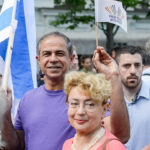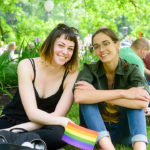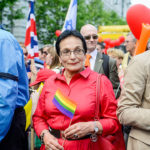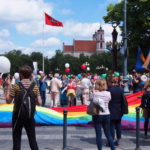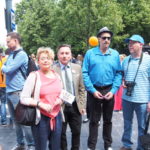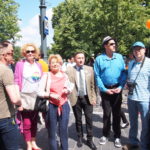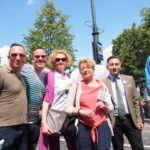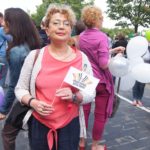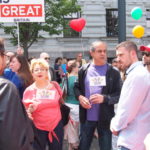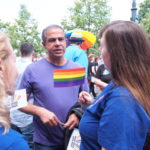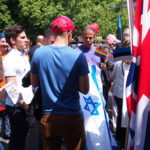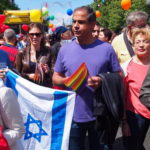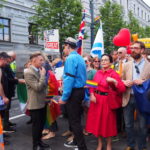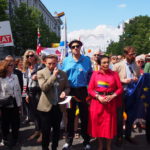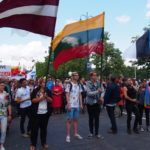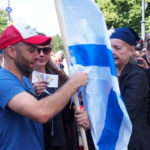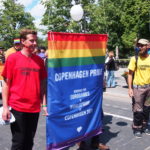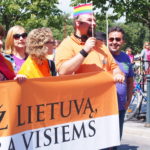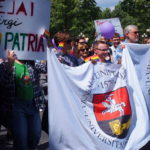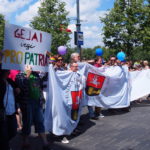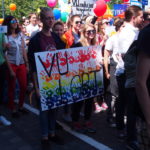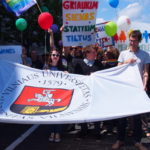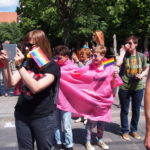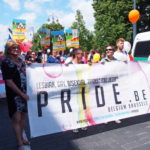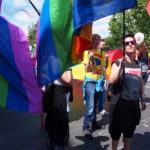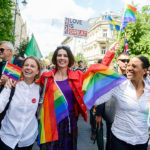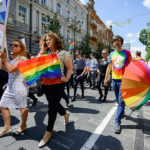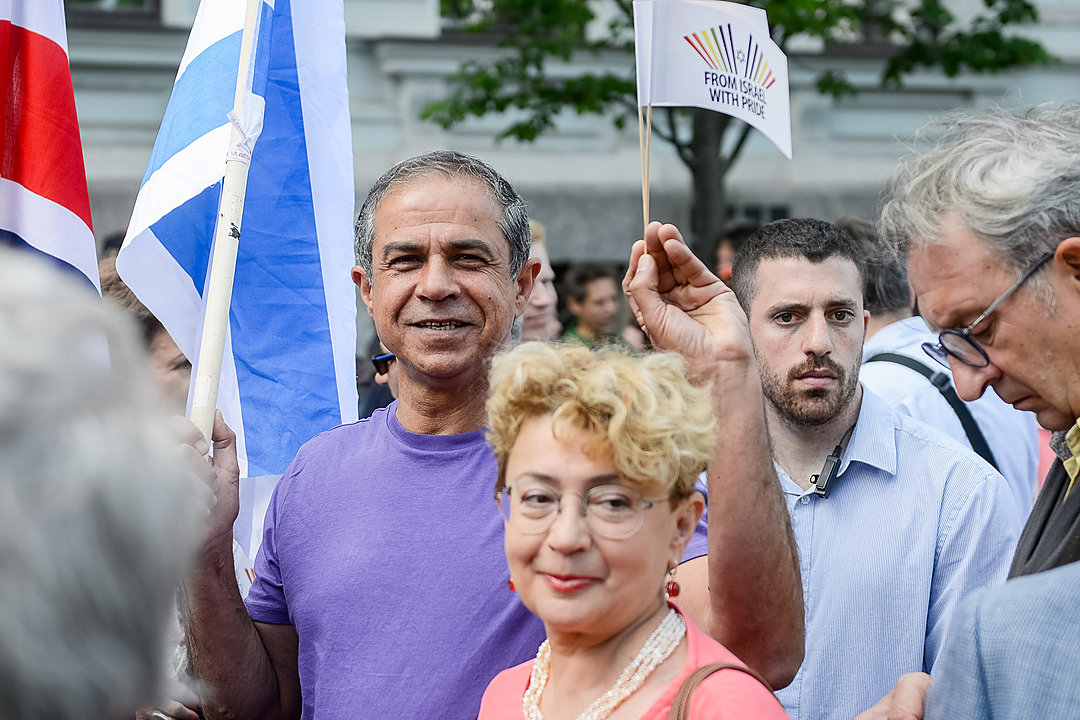
photo: J. Stacevičius/lrytas.lt
Despite strange weather carrying over from the day before when there were sudden gusts of wind, squalls and atomspheric microbursts mixed with heavy thunder and lightning, a record number of people turned out this year for the annual Gay Pride march in Vilnius. Many but certainly not most wore costumes just as flamboyant as the mercurial weather.
Amid gusting winds, at least 1,500-2,000 marchers and possibly more, according to the Lithuanian daily newspaper Lietuvos rytas, assembled at Lukiškės square and marched down the main boulevard, Gedimino prospect, past Cathedral Square to the city park area called Bernardinų sodas [Garden of the Bernardines] on the banks of the Vilnelė creek Saturday.
Some carried signs protesting the recent mass-shooting at a gay night club in Orlando, Florida. One marcher said she made up her mind to march this year because of that incident, and the assassination of a British MP the following day.
Leading the vanguard for equal rights was Lithuanian Jewish Community chairwoman Faina Kukliansky along with Israeli ambassador to Lithuania Amir Maimon.
Unlike past years, this year’s march saw few protestors. Six arrests were made, including of a man who had intended to throw eggs at the marchers, but no injuries were reported. Protestors concentrated on four strategic points on the route. An initial sole protestor carrying a sign calling for protecting children from homosexual propaganda stood right at the assembly point facing down marchers Tiananmen-Square-style, but was quickly ushered away by police. Next a small group of anti-Gay Pride protestors lined the sidewalk at Government House, but were more or less drowned out by passers-by on the sidewalk enthusiastically chanting support for equal rights. The main protest included former politician Vytautas Šustauskas on a bullhorn, the same sign about homosexual propaganda and a motley crew waving religious icons and crosses at the marchers where the main boulevard reaches Vilnius Cathedral, the city center. Police kept the opposing sides from interacting for the most part, but an arrest was reportedly made there by a sign-holder irate a marcher had blocked his sign with a small rainbow flag, the symbol of equal rights for gays around the world. One of the men waving crosses to ward off the gay plague appeared to be homeless and intoxicated. The final attempt at protest was at the gate to the Garden of the Bernardines, again a bullhorn and the same sign about homosexual propaganda.
On the other side, a number of prominent Lithuanians marched in support of gay rights, including a large group from the Lithuanian Liberal Party. Social democrat MP Marija Pavilionienė, an LGBT rights activists in Lithuania and chair of an ad hoc group of Lithuanian MPs for equality, marched near the front. Besides the Israeli ambassador, Sweden’s ambassador to Lithuania Cecilia Ruthström-Ruin and Norwegian ambassador Dag Malmer Halvorsen were quite visible in the march. So were Lithuanian television personality Beata Tiškevič and Erica Jennings, the singer originally from Ireland who led the pop-group Skamp and resettled in Lithuania with her Lithuanian husband. The Lithuanian actress Aistė Diržiūtė, best known for her role as Austė in the Lithuanian-language film Sangailės vasara [Summer of Sangaile] about the love two young women find together, also marched for equal rights.
There were also entire delegations from abroad, including a large group of flag-waving Latvians towards the front, followed by a slightly smaller Estonian delegation behind them. Israeli flags large and small were abundant throughout the march and there were distinct groups of Danes, Brits, Belgians, Norwegians, Russians, Americans, Swedes and others as well. One man carried a Ugandan flag. Many younger members of the Lithuanian Jewish Community participated as well.
The upsurge in support for equal rights for sexual minorities stands in stark contrast to the ever-dwindling number of attendees at the two marches staged annually by Lithuanian neo-Nazis and ultranationalists on Lithuania’s two independence days in Kaunas and Vilnius.



